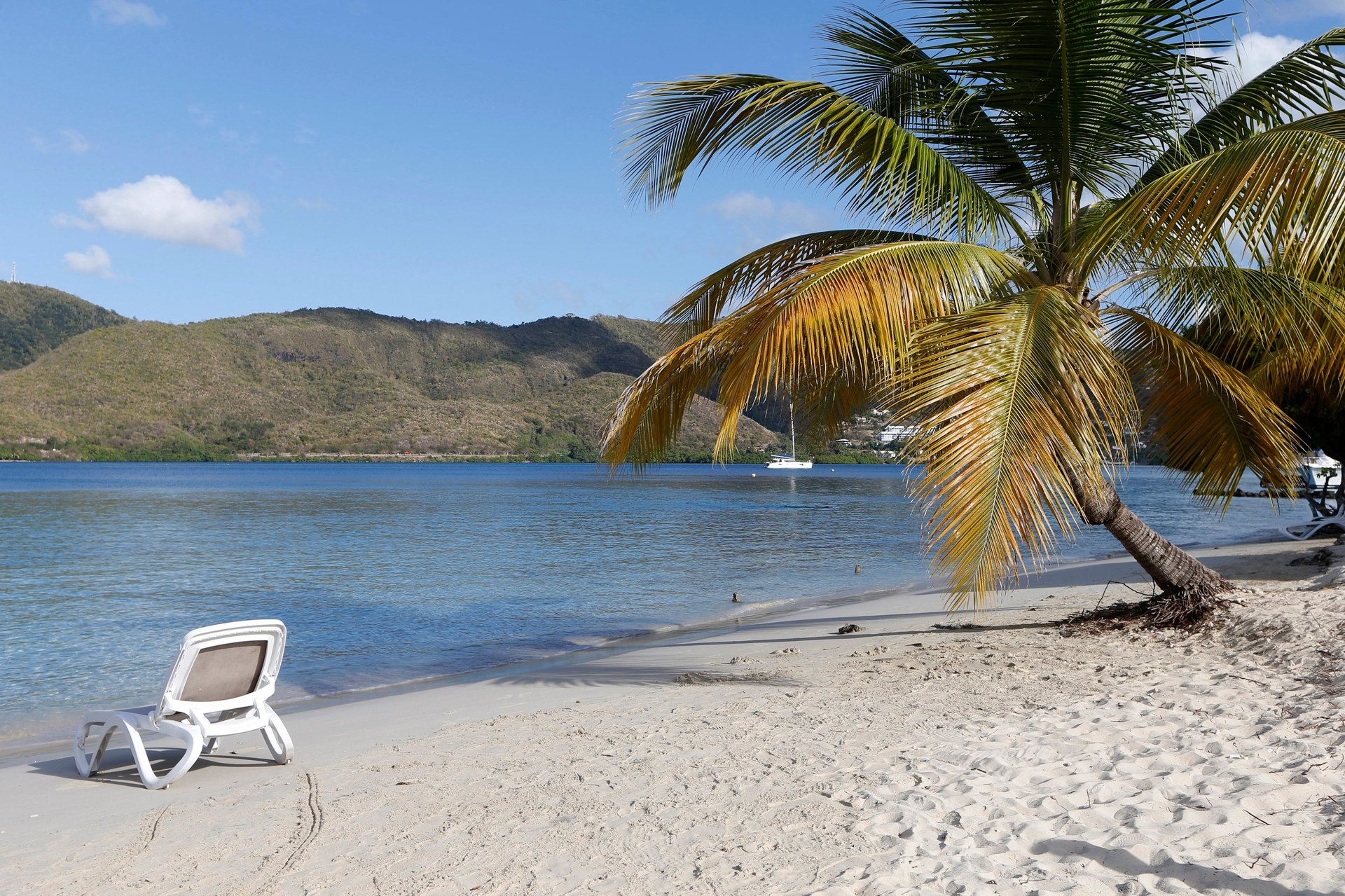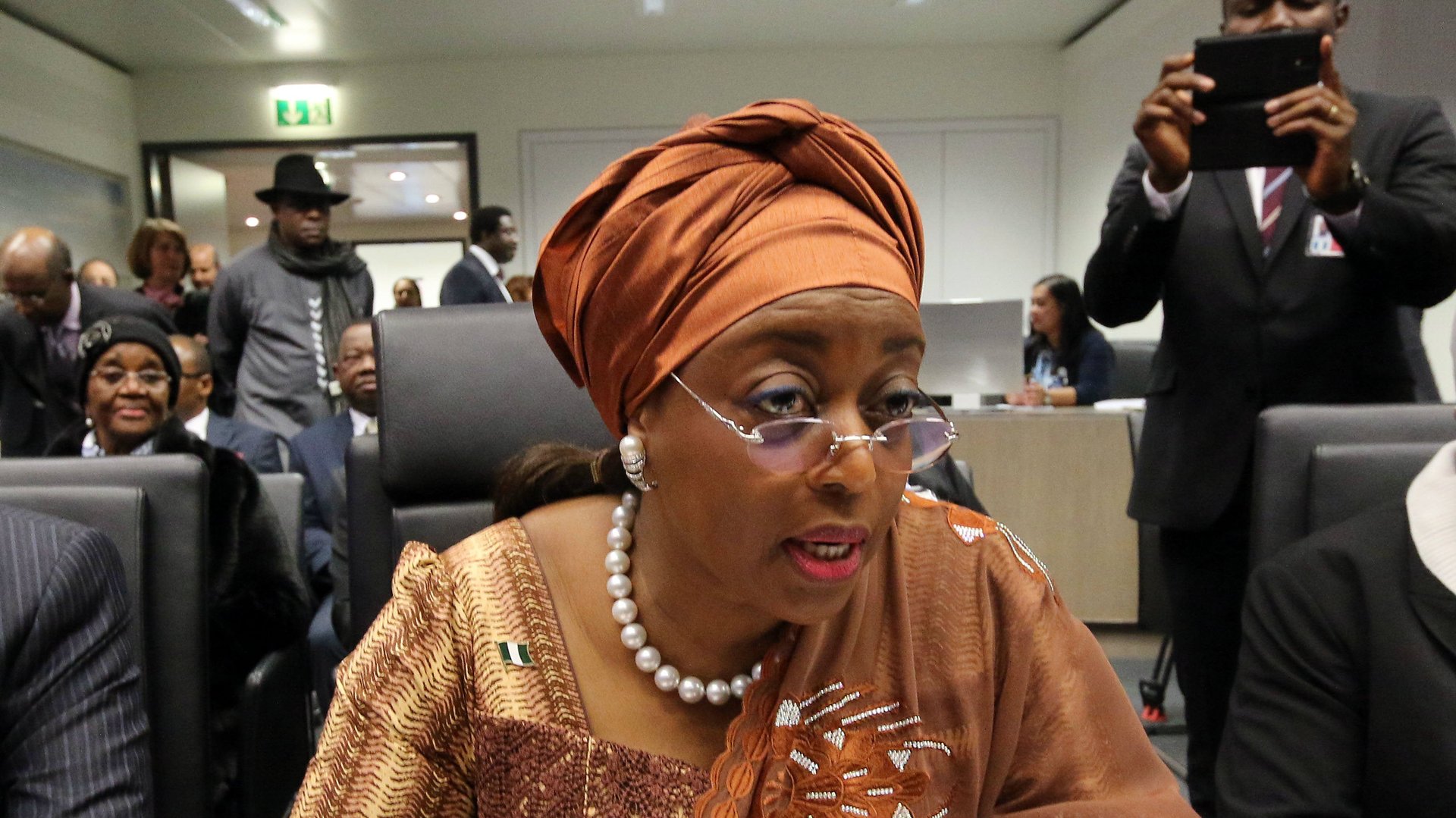Wealthy Nigerians are buying up passports for cash from Caribbean nations to beat visa rules
A year ago, the office of Citizenship by Investment Program (CIP) in the small Caribbean island nation of St. Lucia had received no applications from any Africans in its nearly five years of operations.


A year ago, the office of Citizenship by Investment Program (CIP) in the small Caribbean island nation of St. Lucia had received no applications from any Africans in its nearly five years of operations.
But in the past few months, it has issued up to 60 passports to Nigerians and is reporting steady increases in applications from the country—still its sole African market.
That sharp rise reflects spiking demand among Nigeria’s wealthy private citizens who are increasingly tapping into “investment migration” programs offered by foreign countries. The programs allow foreign nationals to obtain fast-tracked citizenship and passports or permanent residency permits in exchange for specified amounts of cash investments. The payment for the passports can come in form of direct “contributions” to the development funds set up by the national governments or through investment in real estate projects which offer the promise of not just passports but also possible profits.
With around 40,000 passports believed to have been issued through investment migration programs globally, citizenship by investment is now estimated to be a $3 billion industry. It is often favored by high-net worth individuals from countries with “weak” passports often from countries in sub-Saharan Africa and some Middle Eastern countries.
Henley & Partners, the world’s largest investment migration consultancy, has also set up shop in Africa’s largest economy after seeing a sharp rise in demand from the country over the past three years. The office in Lagos is only Henley & Partners’ third in Africa, in addition to offices in Cape Town and Johannesburg opened six years ago.
“The reason we opened in Nigeria is because we saw significant potential in the market with growth in private wealth without global mobility for high net worth individuals,” says Paddy Blewer, public relations director at Henley & Partners. “What you have is a community of wealthy individuals who cannot travel without visas.”
That reality is best captured by the weakness of Nigeria’s international passport. In fact, Nigerian passport holders can visit two fewer countries now than they could in 2010 without first obtaining a visa. The country also suffered the worst decline in passport power over the past decade, according to rankings on the annual Henley Passport Index.
But even paperwork-intensive visa application processes have also gotten more complicated for Nigerians. Under the Trump administration, for example, US visa application fees for Nigerian applicants have been increased, an interview waiver process for visa renewals for frequent travelers has been indefinitely suspended while a ban has also been placed on issuing immigrant visas to Nigerians. The net effect of these restrictions resulted in Nigeria recording the largest global drop-off in visitors to the US last year.
In search of improved international mobility, investment migration programs by Caribbean nations offer wealthy Nigerians and other citizens a legal and established workaround that ticks two crucial boxes: price point and access.
For instance, St. Lucia’s lowest-priced program, a “contribution to the national economic fund,” costs $100,000 for individuals and $140,000 for a family of four, as well as $15,000 for each additional family member. “That pricing model has really resonated well with the Nigerian community,” says Nestor Alfred, chief executive of St. Lucia’s CIP office. “A lot of our Nigerian applications consist of families.”
Other Caribbean islands including Dominica as well as St. Kitts and Nevis also offer investment migration programs with minimum costs of $100,000 and $150,000 respectively, a lot less than similar European programs typically cost. The US program issues permanent residence permits in exchange for investment ranging from $500,000 to $1 million.
But in addition to relative affordability, passports of Caribbean island nations also rank much higher than Nigeria’s on a global scale. For instance, St. Lucia passport holders have visa-free and visa-on-arrival access to 145 countries—more than triple Nigeria’s figure. And for extra context, St. Lucia passport holders’ visa free access allows them into the entire European 26-country “Schengen” area, the UK, and Switzerland.
Taking it up
With Nigeria’s oil-dependent economy battered by the pandemic and set for its worst recession in three decades, there are few indications interest in investment migration from Nigeria will slow down.
Nigeria and South Africa dominate demand from Africa and currently account for 85% of Henley & Partners’ business on the continent, with Nigeria growing rapidly with an interest in Caribbean-based citizenship programs.
That momentum will likely remain fueled by Nigeria’s super-wealthy with the country’s population of people with a net worth of more than $30 million—currently at 724 people—forecast to grow by 13% in the next five years.
But as it turns out, interest in emigration is not restricted to Nigeria’s super-wealthy alone. Over the past three years, middle-class Nigerians have also increasingly emigrated through skill-based programs offering legal pathways to residency and citizenship in Canada and Australia. In the last five years alone, the number of Nigerian immigrants issued permanent resident permits in Canada has tripled.
One distinction however is that high net-worth individuals who have earned most of their wealth locally are typically simply looking to boost their mobility options rather than permanently relocate. “We’re dealing with people whose businesses and largely their wealth is derived from Nigerian investment—they’re not going to leave permanently,” says Blewer. “This is about being able to go where they want at the drop of a hat. It’s not about leaving Lagos.”
Double-checking
For tourism-based economies in the Caribbeans, investment migration programs offer a significant alternative to receiving foreign direct investment. And as recent history shows, with the Covid-19 pandemic paralyzing global travel and tourism, the revenue diversification opportunities these programs offer can prove vital. Indeed, after Hurricane Maria devastated Dominica in 2017, the government sought to shore up tourism deficits by reducing some of its processing fees to make its investment migration programs more attractive and in turn, provide much-needed funds to rebuild and boost the local economy.
But Dominica has also been caught in the crosshairs of a corruption scandal involving its passports program. Last year, an Al Jazeera investigation showed high-powered officials involved in brokering transactions to sell diplomatic passports to foreign business people suspected of corrupt dealings. Diezani Alison-Madueke, Nigeria’s embattled former minister of petroleum who is wanted for alleged corrupt dealings while in office, was identified in the investigation as one of the recipients of a diplomatic passport under questionable circumstances.

The scrutiny from such scandals amplify why investment migration programs claim to place a premium on due diligence. Even though it’s not legally required to, Henley & Partners says it carries out client verification processes, covering sources of wealth, and criminal history.
“We’re not interested in persons involved in military, government officials, or politically exposed persons. Our interest is more in executives and young professionals,” Alfred tells Quartz Africa. As such, the increased applications from Nigeria being primarily from private business executives across sectors, including banking, is ideal for St. Lucia because “it’s easier for us to determine the source of funds,” Alfred says.
Sign up to the Quartz Africa Weekly Brief here for news and analysis on African business, tech, and innovation in your inbox